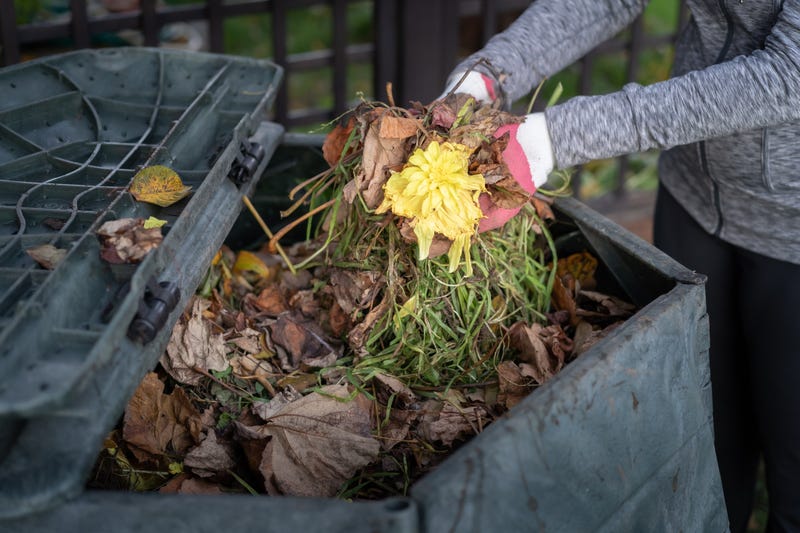
LOS ANGELES (KNX) — Come Jan. 1, 2022 Californians will have to take an extra step when sorting their trash for collection. Composting programs will be put into place by the start of the new year — requiring all to think a little harder about what goes into the “trash bin.”
Once the change is in effect,items like egg shells, food waste and food-soiled papers will have to head to the “green waste” bin, along with all landscaping and yard debris, per Senate Bill 1383.
Alexa Kielty, a specialist in San Francisco's Department of the Environment Zero Waste Program, spoke with KNX In Depth to explain how the county and it’s residents have been incorporating a similar program for the last 25 years.
“It's really not that complicated,” Kielty said. “Right now people already put a lot of their organics - their food scraps - in their trash bin. What we’re talking about is putting your organics in a separate bin [when taking them out to the curb].”
The decision to separate compostables was put on the ballot as a way to both ease up on landfills and reduce climate warming.
Not much will change, the same recycling, trash and green waste bins will be used. However, Californians will now have to make sure that their food items make it to the green waste bins will all the yard trimmings.
Violating the new mandate could result in fines up to $500 a day for individuals, according to The Los Angeles Times.
While it may seem like a nuisance to keep track of what winds up in your trash bin, the real work will happen once it’s all collected from your home. In San Francisco, it’s a 60-day process that starts with sorting out anything that doesn’t belong — like plastic or glass.
Once it’s all ground up and ready to go, it’s sold to farmers and vineyards, to make its way back to the earth.
“[The compost] actually has the ability to retain tremendous amounts of moisture,” Kielty said.
“It allows farmers to grow more food than they would otherwise because they don't have to grow that food with a petroleum-based fertilizer, they don't have to use pesticides, they don't have to use herbicides — so you're getting healthier, more robust fruits and vegetables by using compost.”
Reducing the amount of organic material that makes it to state landfills also reduces the amount of methane gas in our state, according to CalRecycle, the organization leading the charge for change.
Landfills emit 20% of the state’s methane, a climate super pollutant 84 times more potent than carbon dioxide, the department said. They also emit air pollutants like PM 2.5, which contributes to asthma.
The state’s goal is to reduce organic waste disposal by 75% by 2025. Which, according The Times, would mean redirecting some “17.7 million tons of organic material” away from trash bins and into green waste bins.
Aside from reducing organic waste, SB 1383 also requires businesses across the state to maximize edible food donations, Kielty said.
"We don't want to be composting food that could be eaten by people in need," she said, adding that while the county already has a compost program in play, it will need to plan to meet the demands of the bill.
"We want to maximize edible food recovery and donation from our businesses, so that's an area where we're spending a lot of our time."

